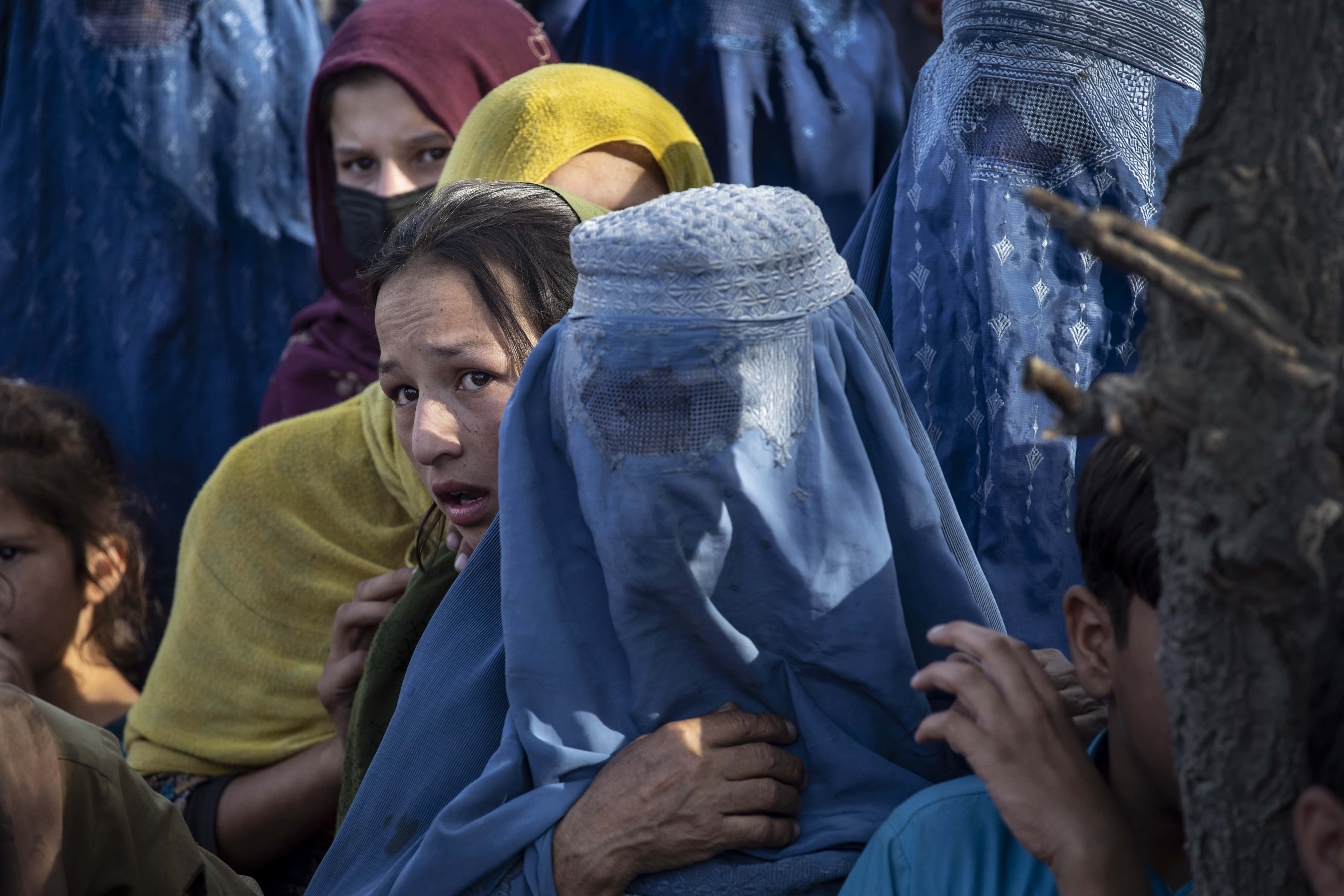Who is Charlotte Bellis? Only woman at Taliban presser asks if they'll 'respect Afghan women'

The Taliban's first official press conference this week featured a brave journalist who turned heads as she posed a bold question to the extremist group that is likely to rule the embattled country in the near future.
Charlotte Bellis could be easily distinguished in the media scrum sitting before the Taliban on Tuesday, August 17, considering she was the only female journalist allowed to attend the press conference. Her blonde locks were visible from underneath a head covering as she asked a question centered around whether the new regime would respect the rights of thousands of terror-stricken Afghan women.
RELATED ARTICLES
Is Taliban 2.0 any different? 'Horrifying reasons' Afghan women are terrified of group's return
Who is Hibatullah Akhundzada? Five things you need to know about the Taliban supreme leader
Originally from New Zealand, Bellis has been an Afghanistan correspondent for Al Jazeera -- a middle eastern news organization partly funded by the Qatari government -- since 2019. The experienced journalist was the only female allowed to attend the Taliban's first official press conference.
Bellis appeared composed and measured in footage of the tense event as she introduced herself to Afghanistan's new leaders before asking a rather pointed question. "I want to talk to you about women's rights and girl's rights, about whether women will be allowed to work and if girls will still go to school," she said. "What assurances can you give to women and girls that their rights will be protected?"

In response, Taliban spokesman Zabiullah Mujahid assured reporters that the Islamic Emirate of Afghanistan would recognize women's rights but only under the framework of Sharia law. "Women will be afforded all their rights. Whether it is at work or other activities because women are a key part of society," Mujahid said. "We are guaranteeing all their rights within the limits of Islam."
The fact that Bellis was allowed to attend the press conference, let alone directly question a member of the Taliban, could be construed as a beacon of hope for Afghan women. Nonetheless, they are still considered to be among the most at-risk under the new regime owing to stringent religious laws akin to those imposed by the hardline Islamists who rose to power in 1996.
According to the Daily Mail, there have been reports of women being "shot dead for wearing tight clothes, escorted home from work and told not to return, and in some areas forbidden to walk the streets without a male chaperone."
Speaking to AM Radio, however, Bellis described the arrival of the Taliban in Kabul on Monday as "surprisingly friendly," albeit she noted they still had a hit list. The journalist told the station that some of her friends had purchased guns and many more fled the country despite the Taliban promising they wanted "no bloodshed."
According to Bellis, people had to observe other regions that had been under the Taliban's control for some time to understand the ground realities. "There have been stories verified of atrocities - things like targeted assassinations," she explained. "They have a hit list and they kill people on it and make no apologies for that."
Bellis told AM Radio that just last week she learned that one of her colleagues' names was on the hit list and told the Taliban that his death would be "unfortunate." In response, they suggested her colleague call a so-called "hotline" to secure amnesty from the extremist group.
According to Bellis, Afghan President Ashraf Ghani fled the country because there was "no chance" US forces would enter Afghanistan. However, she said that the lack of foreign money would not allow the Taliban to govern the country and sustain a stronghold. "They want legitimacy - that's why they didn't take Kabul by force and it's why they've stopped at this point so they don't fall down," she added.










